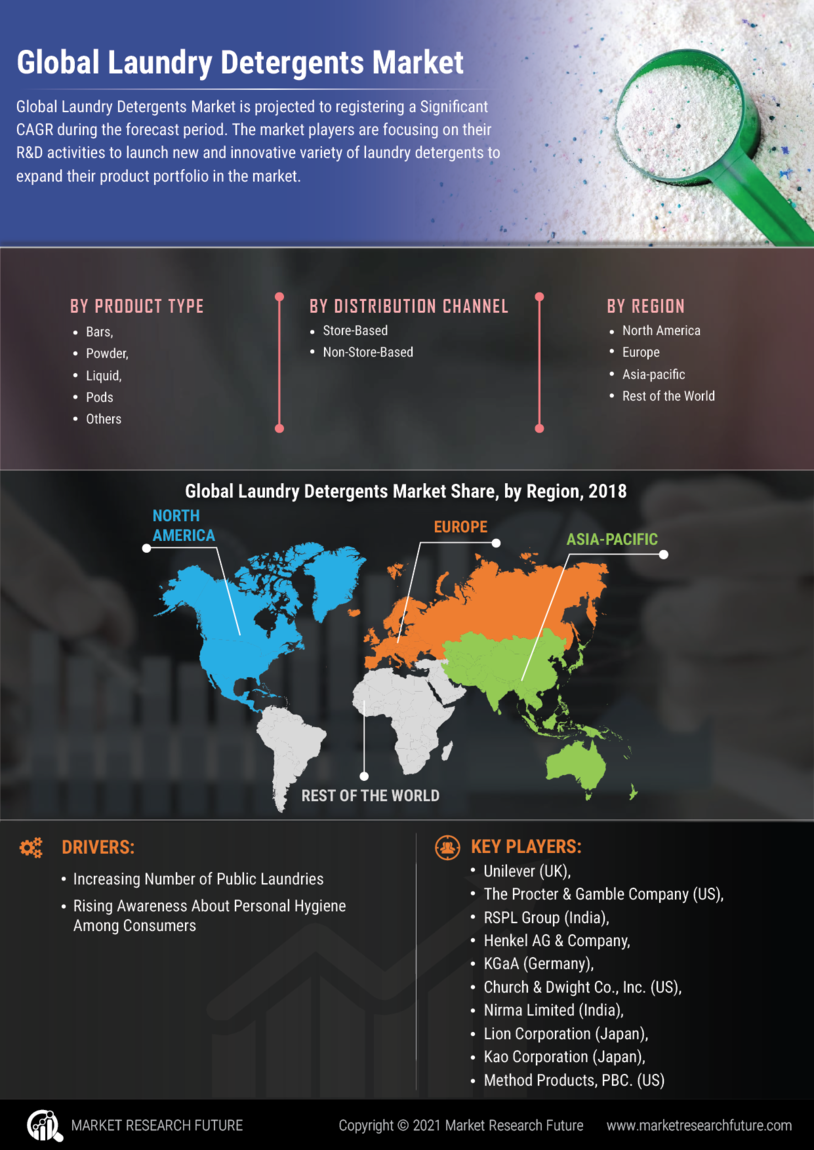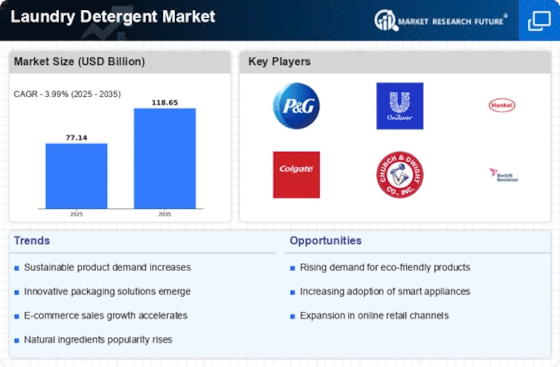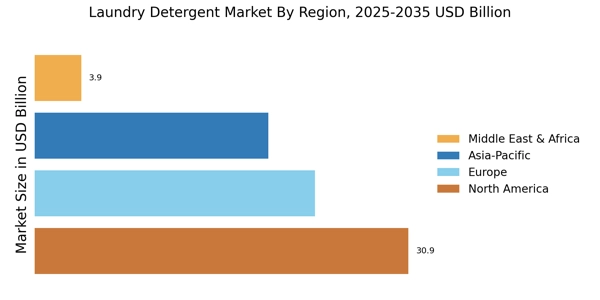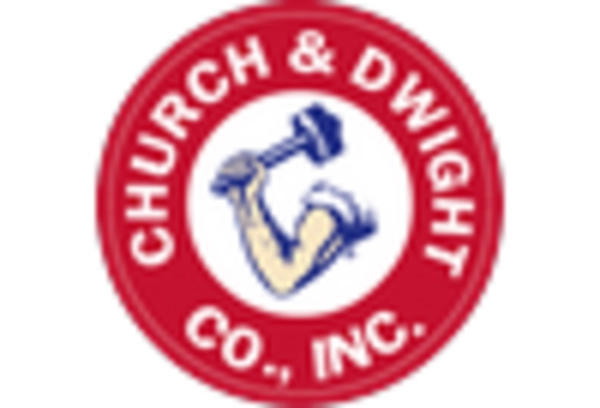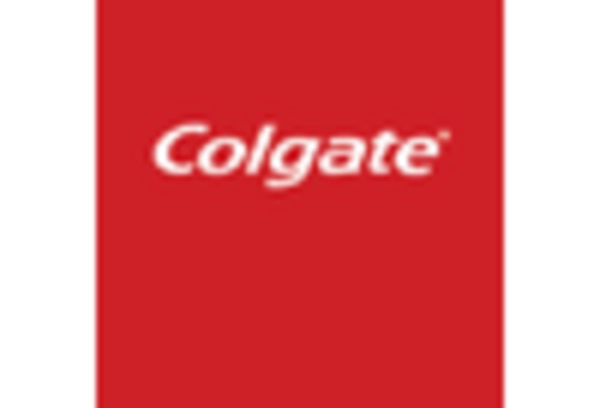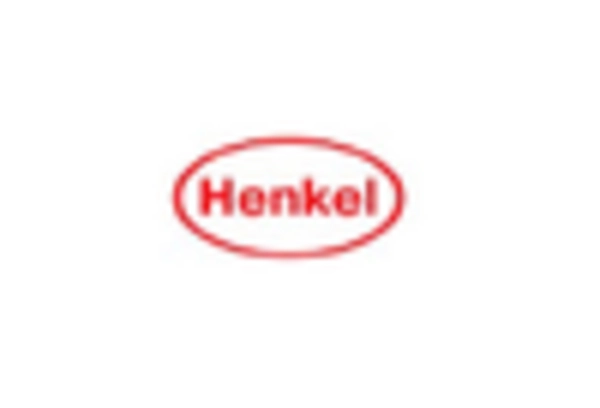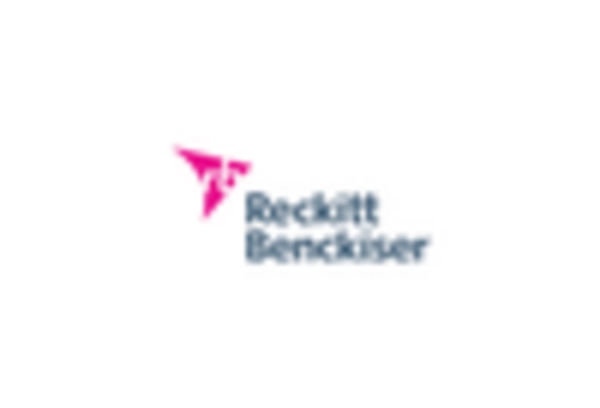Laundry Detergents Market Summary
As per Market Research Future analysis, the Laundry Detergent Market Size was estimated at 77.14 USD Billion in 2024. The Laundry Detergent industry is projected to grow from 80.22 USD Billion in 2025 to 118.65 USD Billion by 2035, exhibiting a compound annual growth rate (CAGR) of 3.9% during the forecast period 2025 - 2035
Key Market Trends & Highlights
The Laundry Detergent Market is experiencing a transformative shift towards sustainability and innovation.
- The North American market remains the largest, driven by a strong demand for liquid laundry detergents.
- In the Asia-Pacific region, the market is expanding rapidly, fueled by increasing urbanization and changing consumer preferences.
- Innovative formulations, particularly in eco-friendly products, are gaining traction among environmentally conscious consumers.
- Sustainability initiatives and e-commerce growth are key drivers propelling the market forward.
Market Size & Forecast
| 2024 Market Size | 77.14 (USD Billion) |
| 2035 Market Size | 118.65 (USD Billion) |
| CAGR (2025 - 2035) | 3.99% |
Major Players
Procter & Gamble (US), Unilever (GB), Henkel (DE), Colgate-Palmolive (US), Church & Dwight (US), Reckitt Benckiser (GB), SC Johnson (US), Ecover (BE), Seventh Generation (US)
